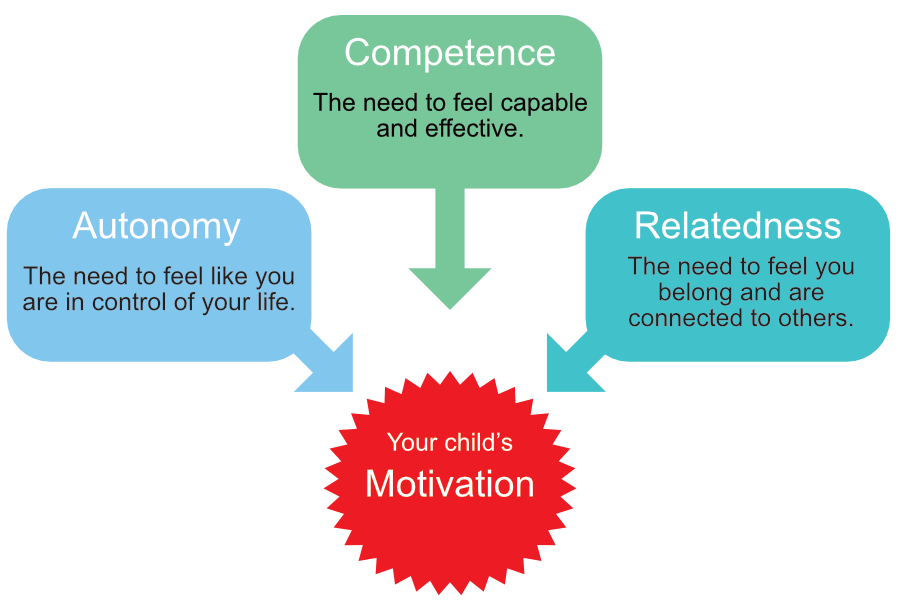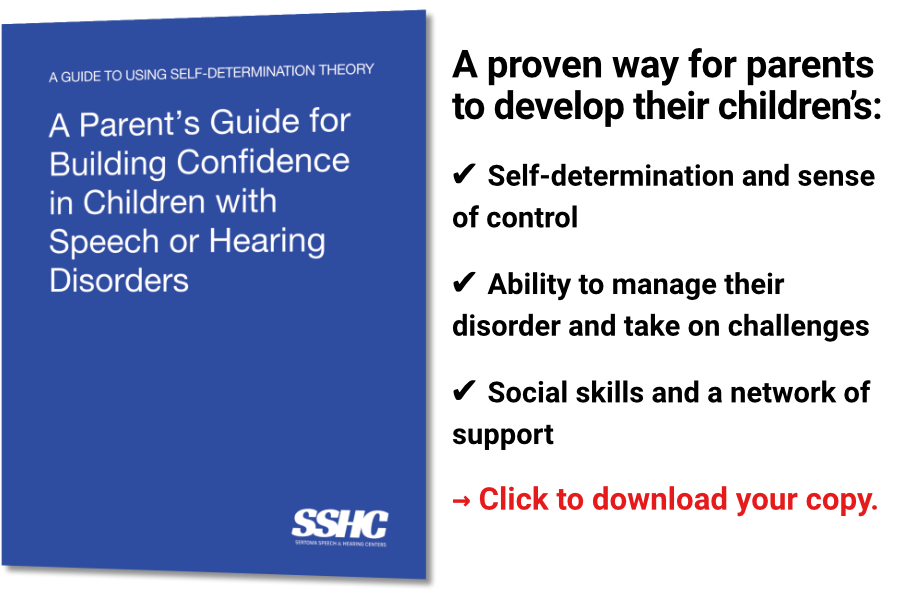Children with speech or hearing disorders share the same goals and aspirations as their peers without these challenges — they want to learn, grow, and thrive. Despite facing unique complications, children with communication disorders can achieve great things and realize their full potential.
As a parent of a child with speech or hearing problems, you can use Self-Determination Theory (SDT) to promote your child's self-reliance and confidence. While speech-language pathologists and audiologists use SDT, it is also indispensable for parents seeking the best for their child's growth and development.
Question: Why limit the benefits of SDT to office visits when you can bring them into your home?
- Incorporating SDT principles into your family's daily routines can help your child develop self-determination and confidence.
- With a supportive environment that promotes relatedness, competence, and autonomy, you can help your child thrive and achieve their full potential.

Why it matters
Speech and hearing disorders can jeopardize academic success and social skills. For example
- Children with hearing loss may have difficulty hearing instructions in the classroom, impacting their ability to learn and keep up with their peers.
- They may struggle to communicate effectively, leading to isolation and frustration.
- Communication disorders can weaken self-esteem and confidence, further impacting their academic and social development.
The answer: Using SDT principles helps you develop your child's self-reliance and confidence to mitigate these challenges.

What to know
According to SDT, three innate psychological needs contribute to a person's self-determination: relatedness, competence, and autonomy.
- Autonomy: The need to feel like you are in control of your life and that your choices are meaningful.
- Relatedness: The need to feel connected to others and like you belong.
- Competence: The need to feel capable and effective.
Creating an environment that nurtures these three psychological needs will help your child become more self-determined.
How it works
- Autonomy: Encourage your child to take ownership of their hearing and speech care by involving them in decisions about their treatment. This could include letting them choose their hearing aid colors, involving them in planning office visits and letting them try new technologies.
- Competence: Help your child develop a sense of mastery over their communication disorder by learning more about it, encouraging them to ask their clinician questions, and exploring trusted resources. Celebrate their successes and help them learn from their mistakes.
- Relatedness: Foster positive relationships between your child and others by encouraging them to participate in social activities and connect with others who have similar experiences. Explore support groups and online communities so your child has opportunities to share experiences, advice, and resources.
The takeaway
Incorporating SDT principles in your parenting will strengthen your child's belief in their ability to succeed and navigate their challenges confidently. As a result, they will feel more engaged in their care, leading to better self-management and success in all aspects of life.
Would you like some help?
If you’re in our service area, please call or email if you would like to talk with a speech-language pathologist or audiologist about helping your child thrive with a speech or hearing disorder.
Crest Hill: 630-633-5060 | Palos Hills: 708-599-9500


